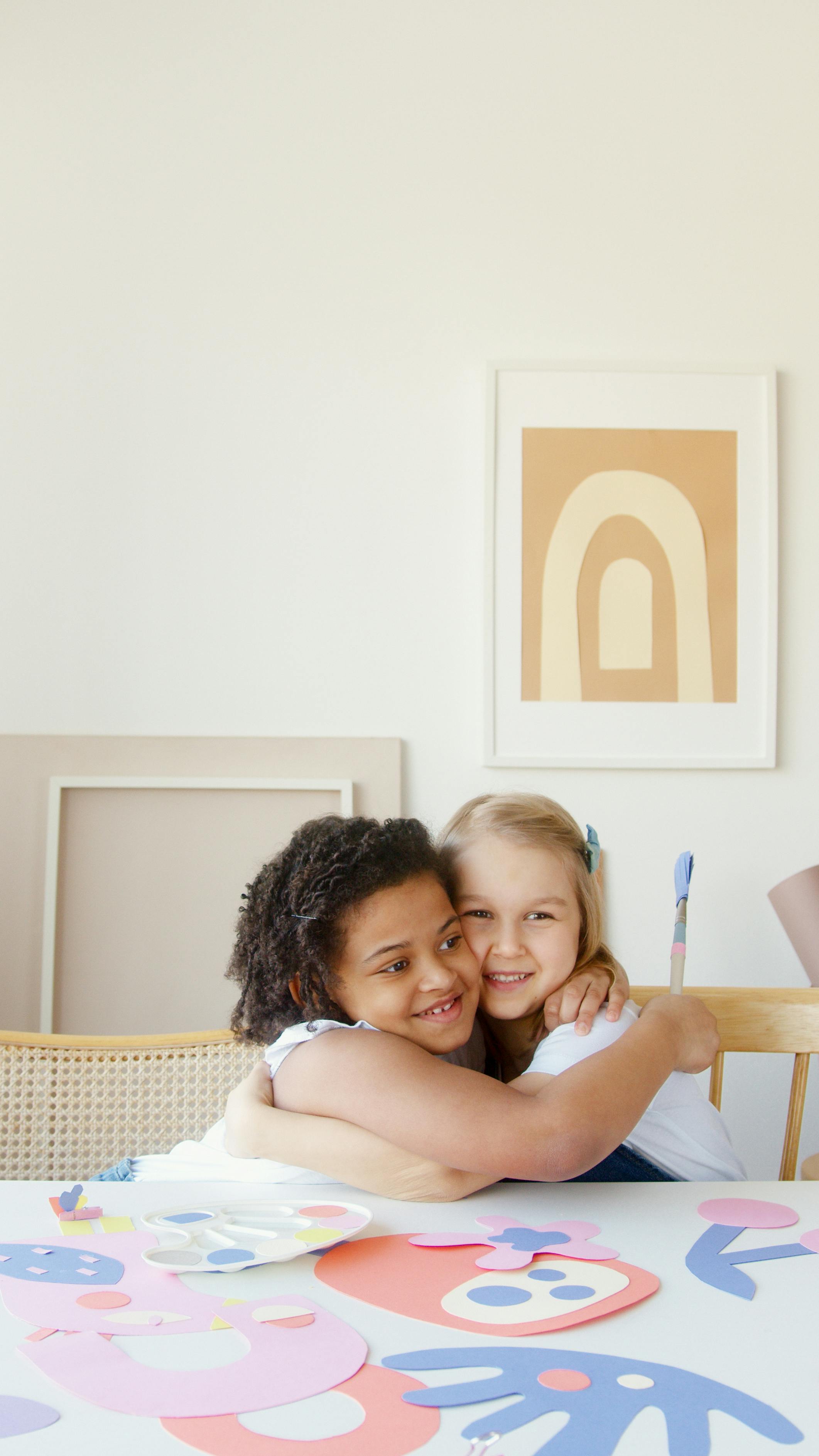In the world of jewelry, few pieces carry as much cultural significance and artistic craftsmanship as cowrie shell necklaces. These exquisite creations not only embody elegance and tradition, but also serve as a testament to the rich heritage of indigenous communities. At Upsera, we take great pride in our commitment to preserving and showcasing the beauty of cowrie shell necklaces. With their timeless appeal and versatility, these stunning pieces are perfect for special occasions or as meaningful gifts. Join us on a journey of appreciation as we explore the enduring legacy of cowrie jewelry and the preservation efforts that ensure their continued existence. Discover the captivating allure of cowrie shell necklaces today at Upsera.com!

History of Cowrie Necklaces
Origin of cowrie shell usage
Cowrie shell necklaces have a rich history that dates back thousands of years. The use of cowrie shells as adornments can be traced back to ancient civilizations such as Mesopotamia, Egypt, and Rome. These shells were highly valued for their unique shape, smooth texture, and vibrant colors, making them a prized possession and a symbol of wealth and status.
Significance of cowrie shell necklaces in different cultures
Cowrie shell necklaces hold significant cultural and spiritual meaning in various societies around the world. In African cultures, cowrie shell necklaces are often worn as symbols of fertility, protection, and prosperity. They are believed to bring good luck and ward off evil spirits. In indigenous communities of the Americas, cowrie shell necklaces are considered sacred and used in traditional ceremonies and rituals.
Evolution of cowrie shell necklace designs
Over the centuries, cowrie shell necklace designs have evolved, reflecting the cultural diversity and artistic expressions of different communities. From simple single strand necklaces to elaborate designs adorned with beads, feathers, and other natural materials, cowrie shell necklaces showcase the ingenuity and creativity of indigenous artisans. Each design tells a story, representing a particular cultural heritage and honoring ancestral traditions.
Traditional Techniques and Artistry
Skills and craftsmanship involved in making cowrie shell necklaces
The creation of cowrie shell necklaces requires a high level of skill, precision, and patience. Indigenous artisans employ various traditional techniques, including weaving, braiding, and intricate knotting, to transform raw materials into stunning jewelry pieces. They meticulously thread together individual cowrie shells, carefully considering the order and placement to create visually striking patterns and designs.
Traditional materials used in conjunction with cowrie shells
In addition to cowrie shells, indigenous artisans often incorporate other traditional materials into their necklace designs. Natural fibers, such as hemp, cotton, or silk, are commonly used for the base of the necklace, providing a sturdy foundation for the delicate cowrie shells. Local gemstones, seeds, and feathers are also utilized to add texture, color, and symbolism to the necklaces, further enhancing their cultural significance.
Symbolism and meaning behind different necklace designs
Each cowrie shell necklace design holds its own symbolism and meaning within its respective cultural context. Some designs may represent fertility and protection, while others may signify unity and spirituality. For example, in Maori culture, the hei matau design, featuring a fishhook-shaped pendant adorned with cowrie shells, represents strength, prosperity, and safe passage over water. Understanding the symbolism behind these designs is essential for appreciating the cultural significance of cowrie shell necklaces.

Indigenous Communities and Cowrie Shell Necklaces
Role of cowrie shell necklaces in indigenous communities
Cowrie shell necklaces play a pivotal role in indigenous communities, serving as potent symbols of identity, heritage, and connection to the land. They are worn during significant life events and ceremonies, such as weddings, births, and coming-of-age rituals. In many indigenous cultures, these necklaces are considered sacred objects, believed to possess spiritual power and serve as a link between the wearer and the ancestral world.
Cultural practices and rituals associated with cowrie shell necklaces
In addition to being worn as personal adornments, cowrie shell necklaces are central to various cultural practices and rituals. They are often used in healing ceremonies, blessings, and offerings to deities or ancestors. The act of presenting a cowrie shell necklace holds deep symbolic meaning, signifying respect, gratitude, and a desire for harmony and balance within the community.
Sustainable sourcing of cowrie shells in indigenous communities
It is important to note that the sustainable sourcing of cowrie shells is crucial to the preservation of indigenous artistry and cultural traditions. Indigenous communities have a deep understanding of the ecological balance and respect for natural resources. They employ traditional harvesting methods that ensure the long-term survival of cowrie shell populations, preventing excessive exploitation and promoting the preservation of these beautiful shells for generations to come.
Cultural Appropriation and Respect for Indigenous Artistry
Understanding cultural appropriation and its impact on indigenous art
Cultural appropriation occurs when elements of one culture are taken, used, or represented outside of their original cultural context without understanding or respecting their significance. This can lead to the commodification and exploitation of indigenous art and culture, often resulting in the erasure of indigenous voices and the perpetuation of harmful stereotypes. It is essential to recognize and address the power dynamics at play and strive for cultural exchange that is respectful, equitable, and mutually beneficial.
The importance of respecting and appreciating indigenous artistry
Respecting and appreciating indigenous artistry involves recognizing the immense knowledge, skill, and cultural significance embedded in cowrie shell necklaces. Indigenous artisans possess a deep understanding of their craft, and their work is a testament to their cultural heritage and ancestral wisdom. By valuing and celebrating their artistry, we contribute to the preservation and continuation of indigenous cultural traditions.
Supporting indigenous artists and communities through ethical practices
Supporting indigenous artists and communities involves actively engaging in ethical practices. This includes purchasing cowrie shell necklaces directly from indigenous artisans or fair trade organizations that ensure fair compensation and sustainable sourcing. It also entails actively promoting indigenous artists and their work, providing them with platforms to share their stories, and respecting their intellectual and cultural property rights.

Preservation Efforts and Challenges
Initiatives to preserve indigenous artistry and traditions
Numerous initiatives are underway to safeguard indigenous artistry and cultural traditions, including the preservation of cowrie shell necklace-making techniques. Indigenous-led organizations and cultural centers collaborate with artisans to document traditional practices, teach younger generations, and create opportunities for intergenerational knowledge sharing. These initiatives are vital in ensuring the continued existence and vitality of this unique artform.
Collaborations between indigenous artists and contemporary designers
Collaborations between indigenous artists and contemporary designers offer exciting opportunities for innovation and the revitalization of traditional artforms. By merging traditional techniques with modern aesthetics, these collaborations create new avenues for indigenous art to thrive in the global market while preserving cultural identity and authenticity.
Challenges faced in the preservation of cowrie shell necklaces
Preserving cowrie shell necklaces and indigenous artistry is not without its challenges. The encroachment of modernization, economic pressures, and the impact of climate change pose significant threats to the continuity of these artforms. Additionally, the exploitation of cultural knowledge and the appropriation of indigenous designs perpetuate inequality and hinder the preservation efforts. Addressing these challenges requires collective action and ongoing support for indigenous rights and cultural autonomy.
Revitalizing Traditional Artforms
Innovative approaches to promote and preserve cowrie shell necklaces
Innovative approaches are being explored to promote and preserve the art of cowrie shell necklaces. This includes the use of digital platforms to showcase indigenous artistry, creating online marketplaces for indigenous artists to directly sell their products, and organizing exhibitions and cultural festivals that highlight the beauty and cultural significance of these necklaces. By embracing new technologies and mediums, indigenous artisans can reach wider audiences and generate greater appreciation for their craft.
Combining traditional artistry with modern aesthetics
To ensure the relevance of cowrie shell necklaces in the modern world, contemporary artists and designers are incorporating traditional artistry into modern jewelry designs. This fusion of traditional techniques and contemporary aesthetics creates unique pieces that honor ancestral traditions while appealing to a wider audience. By striking a balance between cultural authenticity and contemporary appeal, these designs help sustain the practice of cowrie shell necklace-making for future generations.
Relevance of cowrie shell necklaces in the modern world
While cowrie shell necklaces have deep historical and cultural roots, they continue to resonate in the modern world. They have transcended their traditional contexts, becoming fashionable accessories worn by people of all backgrounds who appreciate the beauty and symbolism behind these necklaces. Cowrie shell necklaces not only serve as personal adornments but also as conversation starters, sparking discussions about indigenous artistry, cultural heritage, and interconnectedness.
Empowering Indigenous Artists
Economic empowerment through the sale of cowrie shell necklaces
The creation and sale of cowrie shell necklaces provide indigenous artists with a means of economic empowerment. By supporting their craft, individuals, organizations, and consumers contribute to the sustainable livelihoods of these artists and the preservation of their cultural traditions. Through fair trade practices and equitable compensation, indigenous artists can thrive and pass down their knowledge to future generations.
Importance of fair trade and fair compensation for indigenous artists
Fair trade practices play a crucial role in supporting indigenous artists and communities. Fair compensation ensures that artisans are able to earn a sustainable income from their artwork, enabling them to continue practicing their craft and supporting their families. By engaging in fair trade and ethical purchasing, individuals can directly contribute to the well-being and empowerment of indigenous artists.
Platforms and initiatives supporting indigenous artists
There are various platforms and initiatives dedicated to supporting indigenous artists and their work. These organizations connect indigenous artisans with a global audience, create marketing opportunities, and provide resources for capacity building and skill development. By amplifying indigenous voices and showcasing their artistry, these platforms bring forth the richness and diversity of indigenous cultures.
Educational and Cultural Exchange Programs
The role of education in preserving indigenous artistry
Education plays a pivotal role in preserving indigenous artistry, as it ensures the transmission of knowledge and skills from one generation to the next. Schools, cultural centers, and community organizations offer programs that teach traditional practices, enabling young individuals to learn and appreciate the art of making cowrie shell necklaces. By incorporating indigenous art forms into educational curricula, we encourage cultural preservation and foster respect for diverse cultural traditions.
Cultural exchange programs to promote understanding and appreciation
Cultural exchange programs provide opportunities for individuals from different backgrounds to immerse themselves in indigenous cultures and gain a deeper understanding and appreciation of their artistry. Such programs facilitate knowledge sharing, foster cultural understanding, and promote dialogue between indigenous communities and the wider world. By actively participating in cultural exchange, we contribute to the preservation and celebration of indigenous art forms.
Creating opportunities for indigenous artists to share their knowledge
Creating platforms and opportunities for indigenous artists to share their knowledge and expertise is crucial in the preservation of cowrie shell necklaces. This can be achieved through workshops, artist residencies, and mentorship programs, where experienced artisans pass on their skills, techniques, and cultural insights to aspiring artists. By nurturing the next generation of indigenous artists, we ensure the continuity of this ancient art form.
Future Outlook: Preserving and Celebrating Indigenous Artistry
Sustainable practices for the continued production of cowrie shell necklaces
In order to ensure the continued production of cowrie shell necklaces, sustainable practices must be embraced. This includes responsible sourcing of materials, implementing environmentally-friendly production methods, and supporting fair trade initiatives. By prioritizing sustainability in all aspects of the production process, we can preserve the cultural heritage embedded in these necklaces while minimizing our impact on the environment.
Promoting cultural diversity and inclusivity in the fashion industry
The fashion industry has a significant role to play in promoting cultural diversity and inclusivity. By featuring cowrie shell necklaces in fashion shows, magazine editorials, and social media campaigns, designers can celebrate the artistry and cultural significance of these necklaces while providing a platform for indigenous artists. Moreover, creating space for diverse voices and perspectives within the industry fosters greater understanding and appreciation for indigenous art forms.
Engaging with indigenous communities for long-term preservation efforts
Long-term preservation efforts require continuous engagement with indigenous communities. This includes listening to their needs and aspirations, respecting their cultural protocols, and partnering with them in decision-making processes. Supporting initiatives led by indigenous communities themselves ensures that preservation efforts are guided by their cultural values and priorities, leading to more sustainable and impactful outcomes.
Conclusion
Cowrie shell necklaces possess an enduring beauty and serve as tangible manifestations of indigenous artistry and cultural heritage. These necklaces carry deep spiritual, symbolic, and cultural significance, representing the wisdom, creativity, and resilience of indigenous communities around the world. Preserving and supporting indigenous artistry is not only a matter of cultural appreciation but also a commitment to justice, diversity, and the protection of our shared human heritage. Through ethical practices, fair compensation, and educational initiatives, we can ensure that cowrie shell necklaces continue to inspire, empower, and connect generations to come.





Leave a comment